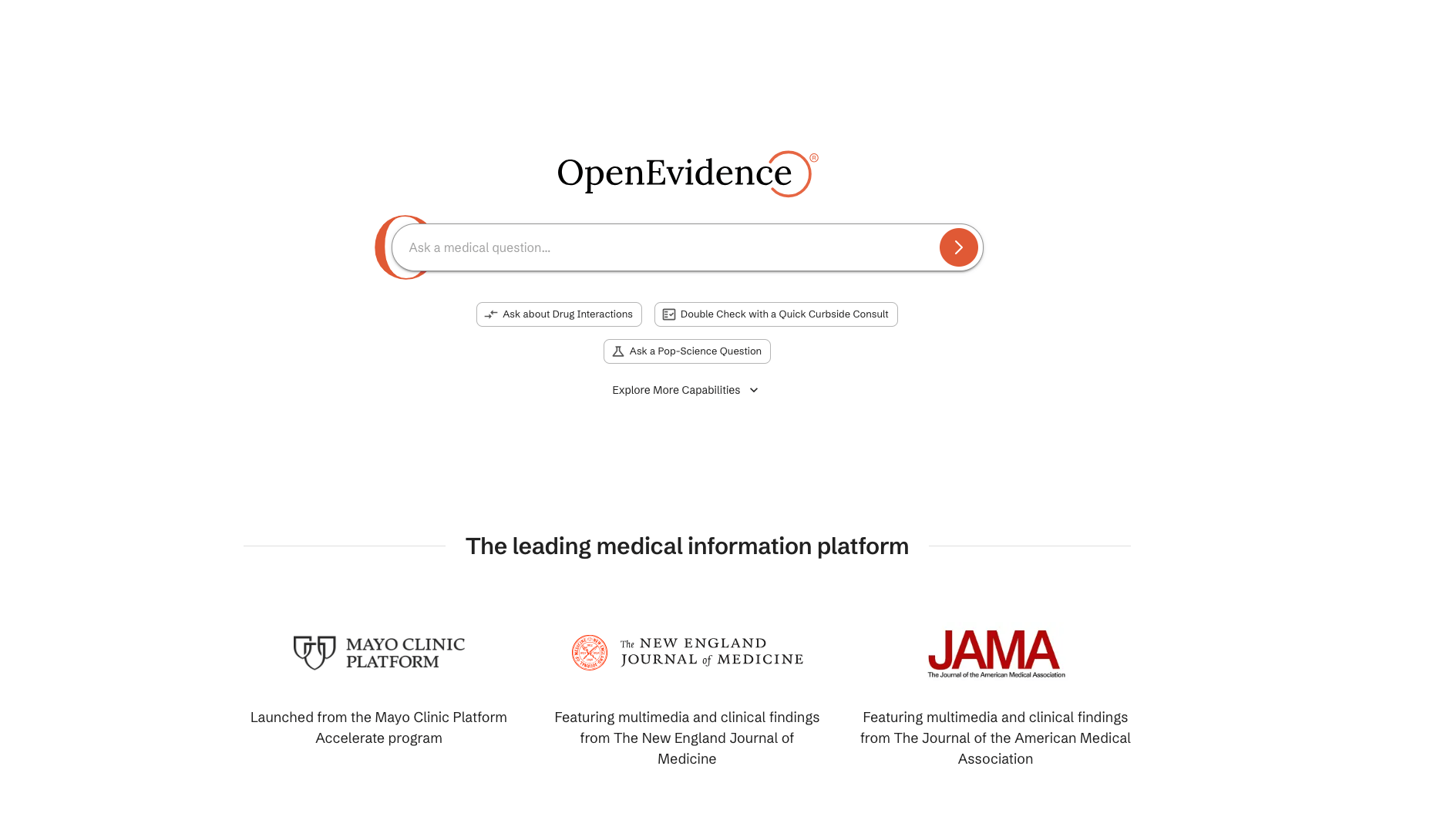openevidence介紹
openevidence 是一個專為醫療專業人員設計的人工智慧平台,致力於提供高品質、循證基礎的臨床決策支援。透過整合頂尖醫學期刊內容,openevidence 運用先進的語言模型技術,即時提供準確且易於理解的醫學知識。不論是在臨床現場還是醫學教育中,openevidence 都是醫師、研究人員與醫學生值得信賴的好幫手。
openevidence功能
主要特點
- AI 醫學搜尋引擎:openevidence 可分析超過 3,500 萬篇經過同儕審查的醫學論文,提供精確摘要與建議。
- 即時臨床支援:臨床工作者可迅速查詢診斷指引與治療建議。
- 醫學考試輔助:AI 系統在美國醫師執照考試(USMLE)中得分超過 90%,廣泛應用於醫學生學習。
- 支援行動裝置:提供 iOS 與 Android App,方便隨時查詢。
- 與 NEJM 合作:整合《新英格蘭醫學期刊》(NEJM)內容,確保資訊來源可信。
優勢和劣勢
優勢:
- 資料權威:來自全球領先醫學期刊與文獻。
- 提升效率:節省查詢時間,快速做出臨床判斷。
- 醫學專屬 AI 模型:比通用型 AI 模型更專業。
- 免費使用:對美國合格醫療專業人員免費開放。
劣勢:
- 需醫療執照驗證:僅限美國醫療從業人員註冊。
- 缺乏多語言支援:目前僅提供英文介面與內容。
- 非公開平台:一般大眾無法完整使用。
openevidence常見問題
Q1:openevidence 是免費的嗎?
A1:是的,對美國持證醫療人員免費開放,但需完成身份驗證。
Q2:openevidence 支援哪些設備?
A2:支援網頁、iOS 與 Android 行動裝置,隨時隨地皆可使用。
Q3:openevidence 與 ChatGPT 有何不同?
A3:openevidence 專為醫療場景訓練,提供更準確與專業的醫學建議,明顯優於通用 AI 模型。
Q4:一般民眾可以使用 openevidence 嗎?
A4:目前僅限美國境內經過驗證的醫療專業人員使用。
Q5:openevidence 有提供中文版本嗎?
A5:目前尚未提供中文版本,所有內容均為英文。
若您是醫療專業人員,openevidence 將是提升臨床判斷力與學術能力的重要工具,絕對值得一試。
